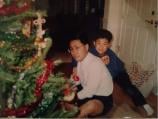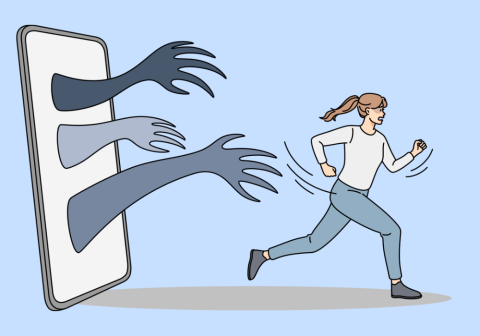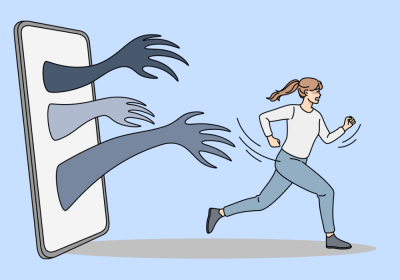I Loved My Dad So Much
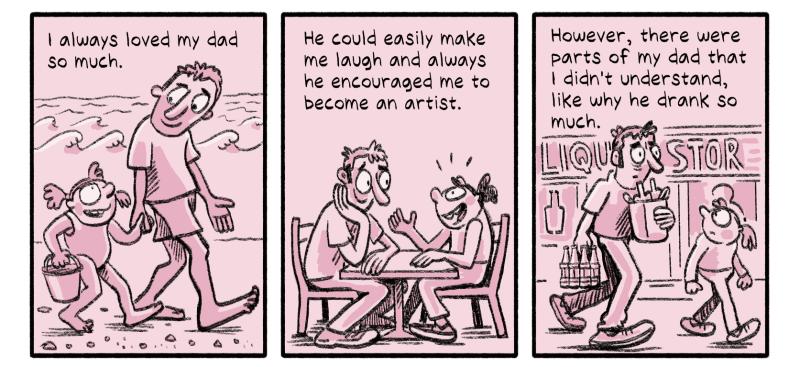
I loved my dad so much.
He could easily make me laugh and always encouraged me to become an artist. However, there were parts of my dad that I didn’t understand—like why he drank so much. I didn’t like when he became hungover and moody, or when he would drink a lot and pass out. When I asked him why he had to drink, he told me it was to take the edge off. I didn’t know what “the edge” was at the time, and it wouldn’t be until years later that I would be able to name my own difficulties.
As a kid, mental health was a confusing mystery that no adult that I knew addressed with me. Coping skills, stress, anxiety, depression, and substance use all seemed like things to figure out on my own or with kids my own age who knew little more than I did. I remember my time in middle school and feeling disconnected, and frightened at school for no apparent reason. It baffled me that one day I could feel like a fun and outgoing person and then the following day I could feel like a nervous, nearly invisible creature uncomfortable walking down the hall. What had changed? Why was I suddenly different?
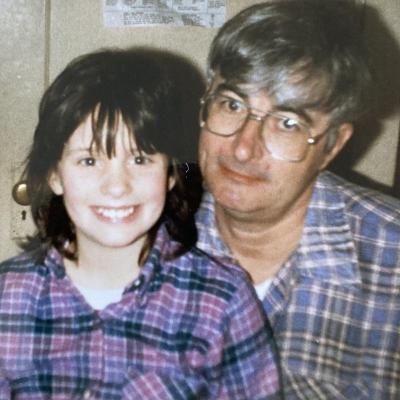
I wish I could tell you that I figured it all out. I didn’t. High school, college, even graduate school—these were all places where my mental health was challenged and tested. I had no idea how to take care of myself. I remember in high school taking long 10-mile walks just to shake the feeling that something was off. And in grad school, far away from family and friends, I was so low that I hid away in my art studio getting very little sleep and unable to make a solid, good decision.
After graduation, I don’t know how I ended up teaching art in one of the best high schools in the country. As a kid, I didn’t even like school! The first couple of years were so hard, but I was determined to do better in the classroom. As I made observations and improved my teaching, I started noticing more and more about the teenagers that came through my classroom. I saw many of the same issues I grew up with sprinkled across the entire student body.
During these years, I found a wonderful therapist who helped me learn and tend to my mental health. Once I was taking better care of my mind, it was easier for me to help others. The art room was an open, safe place to express feelings through drawing, painting, and sculpture. On occasion, I would be the trusted adult that a student would open up to when struggling with big feelings or the gravity of hard situations at home. It struck me that I needed to know more about mental health resources and information so that I could help them.
I attended an in-service training that changed my life. The seminar was about teenage depression and suicide. I took notes and made drawings that filled several pages. Afterward, I published these notes online and received a huge response. There was a hunger for this easy-to-read, easy-to-digest information. This was the early version of what would later become my first mental health comic, Snake Pit.
I continued teaching, but something had changed. The seed of an idea had been planted. I had long dreamed of making a graphic novel, but now I had a focus: mental health. I also knew that I couldn’t both teach and draw a comic. I’d been waking up at 4am for years to draw my comics before school, and that just wasn’t a great longterm plan.
In 2018, I left teaching to pursue this comic about mental health. I posted about it on social media (which in my mind was like making a social contract to finish), and within a month, I had a publishing contract. Suddenly, it became more than just a crazy dream. It’s like the book was willing itself into existence.
A year and a half into the book, the pandemic shut down the world. At the same time, my dad’s dementia was intensifying, so my husband and I (and our dog Raisin) moved in with my parents. All those years of drinking had taken a toll on my dad. He was still a sweet man, but more like a child that needed to be looked after.

In the mornings, I would write and draw. In the afternoons, I would take care of my dad. He could still make me laugh and smile, even in his diminished state. As the book was taking shape, my dad became weaker and slower. We took strolls around the neighborhood until he couldn’t walk anymore. Two weeks later, he passed away in his bed, surrounded by family.
Some three years later, I finished my book Here I Am, I Am Me: An Illustrated Guide to Mental Health. I crammed it with everything I wish I’d known when I was a kid confused by her emotions. Fear, anxiety, depression, suicide. Warning signs, coping tools, and ways to get help. I really tried to make it approachable, a conversation starter for anyone looking for a way in.
I believe that when we share our stories we help others feel less alone. A big part of my book is about confronting and removing stigma, and when you share your mental health story, you do this!
I wrote Here I Am, I Am Me for every kid I know, and every student I’ve ever taught. But it’s also for my dad, for the man he was who had thoughts so heavy he wanted to forget.
- Share Your Story and Voice and Help #breakthestigma Around Mental Health
- Support ADAA's Mission - Every Gift Makes an Impact
- Join an ADAA Online Peer to Peer Support Community
- Find Your Therapist
Cara Bean
Cartoonist, art educator, author of Here I Am, I Am Me: An Illustrated Guide to Mental Health
Website: https://www.carabeancomics.com/
Instagram: @CaraBeanComics
Facebook: https://www.facebook.com/CaraBeanComics
More about Here I Am, I Am Me:
This colorful graphic novel adventure through the brain demystifies and destigmatizes emotional and mental health for children through accessible language and lessons.
Join author-illustrator Cara Bean in Here I Am, I Am Me, as she takes readers on an illustrated journey to the center of the brain. Each of the 9 chapters explores a different aspect of mental health, from the brain and the mind, to feelings and emotions. By portraying complex neuroscience concepts with a cast of illustrated characters (that represent parts of the brain), the book explains what is really going on in the reader’s head in an accessible, approachable way that ultimately serves to empower the reader.
Each chapter includes a “question map” that gives context to and helps frame the pages that follow as well as a “Bean Memory,” which shares a first-person true story that illustrates the chapter’s subject matter as it has played out in the author’s life.
The book doesn’t talk down to its readers, and it doesn’t pretend that teens are immune to mental health struggles: Cara Bean masterfully discusses crucial topics like depression, substance use and addiction, and suicide, all while equipping readers with mindfulness tips, specific resources, and empathetic affirmations. Readers will learn to destigmatize the conversation around mental health by reframing their thinking, learning how to use conscious language, and helping themselves and others through mental health dilemmas.

